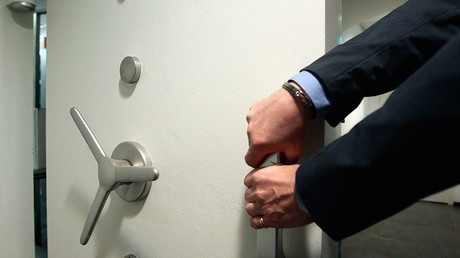Biafra: Libya once a Lavishing country today on brink of economic collapse
The Libyan economy is facing collapse as the civil war is disrupting the country's main source of income oil production, warns the World Bank.
“With oil production just a fifth of the potential, revenues have plummeted, pushing fiscal and current account deficits to record highs. With the dinar rapidly losing value, inflation has accelerated, further eroding real incomes,” the report said.
As a result of falling crude prices and low output, Libya's foreign reserves have shrunk from $107.6 billion in 2013 to a projected $43 billion by the end of this year.
Over the first half of 2016, the country managed to produce an average of 335 thousand barrels per day, down 20 percent from last year. Libya's daily oil production before the 2011 uprising stood at 1.6 million barrels.
The Libyan economy has shrunk by an estimated 8.3 percent, leaving the country in recession since 2013, with GDP per capita dropping by nearly two-thirds of its pre-revolution level, the bank says.
In the first seven month of 2016, Libya’s state income of 3.2 billion dinar ($2.28 billion) was just a tenth of what it was during the same period last year. The Libyan dinar has dropped 73 percent against the dollar on the black market.
Eastern Libya's Russian-printed bank notes raising alarms about unity — rt.com/business/34519… #Libya #bank
The budget deficit remained high at 69 percent of GDP. “While the central government was a net lender before the revolution, domestic debt has since quickly increased to reach a high 110 percent of GDP in 2016,” the WB reports stressing that the deficit was financed mainly through borrowing from the Central Bank of Libya.
Constant shortages have meant food prices have increased 31 percent in the first half of the year, according to World Bank calculations. “Headline inflation jumped to 24 percent over the same period,” the report says. Inflation is expected to average 20 percent this year.
State spending on subsidies fell by 25.4 percent due to lower imported fuel prices and the removal of food subsidies.
“Wages also fell by 8.7 percent reflecting efforts to remove duplicate payments from government payrolls through extending and enforcing the use of the national identification number,” the report says.
At the same time, the World Bank notes that outlays on wages at 61 percent of GDP and subsidies at 18.4 percent of GDP remain very high.
Libya is also facing a political crisis with two centers of power in the country; the internationally recognized government in Tobruk, the Government of National Accord (GNA) and Tripoli-based General National Congress (GNC). The GNA is the centerpiece of UN efforts to end five years of chaos in Libya and it now faces an even tougher battle to assert its authority over the rival administration in the east.
Sourec: rt.com









No comments:
Post a Comment
Note: only a member of this blog may post a comment.